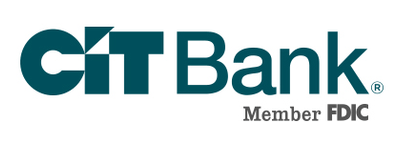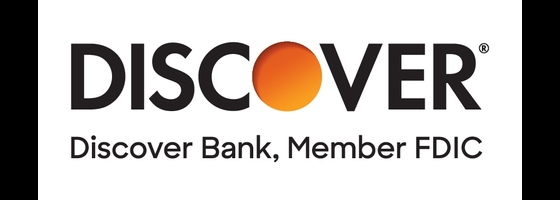Are CDs Worth It?

Our evaluations and opinions are not influenced by our advertising relationships, but we may earn a commission from our partners’ links. This content is created by TIME Stamped, under TIME’s direction and produced in accordance with TIME’s editorial guidelines and overseen by TIME’s editorial staff. Learn more about it.
Certificates of deposit (CDs) allow you to set aside money for a specific term, earning interest until it matures. Banks and credit unions can offer CDs, but they don't always pay the same rates.
So, are CDs worth it as a savings option? They could be if you have a specific goal in mind and you're able to find the best CD rates.
 |  |  | |
|---|---|---|---|
| APY* | 3.50% | Up to 4.50% | Up to 4.10% |
| Min. deposit | $1,000 | $500 | None |
| Monthly fee | $0 | Additional terms, conditions, fees & exclusions may apply | $0 |
| Term | 11 months | 6 months to 5 years | 3 months to 10 years |
| View Offer | View Offer | View Offer |
CD rates are on the rise thanks to several rate hikes instituted by the Federal Reserve in an attempt to quell high inflation. Numerous banks are offering CDs in the 5% range, while some are paying up to 7% for CD specials. However, it's important to remember that CD rates can change in relation to what's happening with the economy and federal interest rate policy.
Here's what to consider when deciding whether CDs might be right for you.
No savings option is perfect and while there are plenty of advantages associated with CDs, there are some potential downsides as well. Knowing what's good and bad about CDs is helpful, especially if you're new to this type of savings vehicle.
Before diving into the benefits of CDs, here's a little more background info on how they work.
When you deposit money into a CD, you're agreeing to leave the money where it is for a set maturity term. That maturity term might last anywhere from 30 days to 10 years, depending on where you've opened the CD.
While your money is in the CD, the bank pays interest to you. Once the CD reaches the end of its term or matures, you can withdraw your original deposit and the interest earned, or roll it all over to a new CD.
Now, as for the benefits of CDs, here are some of the best reasons to consider using them to save:
Saving in a CD can also allow for some variety, as there are different types of CDs you can choose from. In addition to the traditional CD option, you might be able to open a raise-your-rate or bump-rate CD, add-on CD, or a no-penalty CD.
Raise-your-rate and bump-rate CDs allow you to increase your CD rate once (or twice) during the CD term. That's a plus if rates rise after you initially opened your account and don't want to miss out on higher rates. Add-on CDs, meanwhile, allow you to make monthly deposits to your account after the initial opening, something traditional CDs usually don't permit.
No-penalty CDs let you withdraw money from your account before it matures, without a penalty. Early withdrawal penalties are one of the CD drawbacks we'll cover in the next section.
As mentioned, there are some things that could make you think twice about saving in CDs. Here are some of the most important disadvantages to consider:
As you're evaluating CD options, it helps to know how to compare them. The interest rate and annual percentage yield (APY) are a good place to start, but it's also helpful to look at the CD terms that are available, fees, and minimum opening deposit requirements.
Some banks may allow you to open a CD account with $0 initially, then make your first deposit within five to seven business days. Others may require you to deposit $500, $1,000, or $5,000 or more right from the start. Again, fees can add up if you need to take money out early but you could get around penalties by building a CD ladder.
CD laddering involves buying multiple CDs with varying maturity terms. The idea is that a maturity date should always be on the horizon in case you need to make a withdrawal. That can allow you to avoid early withdrawal penalties and potentially cash in on higher rates if you're able to move your savings into a new CD with a higher APY.
Laddering CDs has some advantages, but keep in mind that you'll need to be able to meet the minimum deposit requirement for each “rung” you establish.
Saving money in a CD could make sense if you know that you won't need those funds before the CD term ends and you're able to find competitive rates. Of course, it's helpful to consider other savings and investment options when determining the best way to put your money to work.
For example, you might decide to open a high-yield savings account or money market account instead. Savings accounts and money market accounts allow you to deposit money and they can earn interest, but there are two key differences. (1) These accounts let you withdraw money, typically up to six times per month, with no penalty fee. And (2) interest rates aren’t fixed. If the economy changes, the interest these accounts pay could diminish. That won’t happen with a CD.
In terms of how the rates compare, it typically depends on where you're planning to open a savings account, money market account, or CD account. It's possible to find CDs that pay higher rates than savings or money market accounts, but again, you have to remember that your money is effectively locked in once you deposit it.
If you're looking for the highest returns for your money, then you might consider investing it instead of saving it. For instance, you could open a brokerage account and buy stocks, bonds, exchange-traded funds (ETFs), or mutual funds. even cryptocurrency. The most important things to consider when investing are your personal risk tolerance and goals.
As a general rule, greater risk usually means greater rewards. Opting for safer investments, meanwhile, could make it less likely that you'll lose money. And bank CDs are protected by the FDIC, and credit union ones by the NCUA.
Putting money into CDs when rates are high could help you earn a decent chunk of change on your savings. Comparing CD rates and terms from different banks and credit unions can give you an idea of what's available and how much of a return you could get for your money. It's also a good idea to keep an eye on how interest rates are moving and how that might affect CD rates.
CDs can make you money if you're earning interest on the money you deposit. The higher the APY, the larger the deposit, and often the longer the CD term is, the more money you could earn. Saving in CDs is just one way to generate passive income, since your money is working for you and not the other way around.
Interest on CD accounts and other savings accounts is considered to be taxable income by the IRS. Your bank should furnish you with a form showing how much interest you earned during the year, which you'll need to report on your tax return.
CD rates can vary from bank to bank but the best options can usually be found online. Online banks often pay higher CD rates to savers than traditional banks, largely owing to their overhead costs. You can also find special CDs with above-average rates offered at credit unions, though you'll typically need to be able to meet membership requirements in order to join and open an account.
The information presented here is created by TIME Stamped and overseen by TIME editorial staff. To learn more, see our About Us page.



